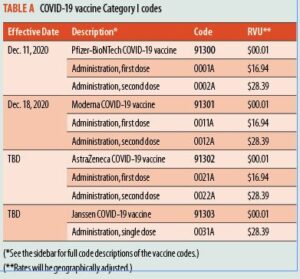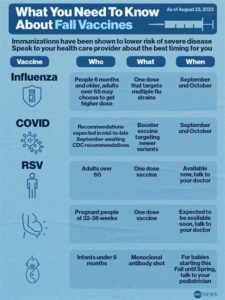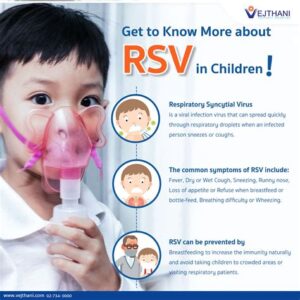Explore RSV vaccination, its potential side effects, common reactions, severity, and effective management strategies to ensure a safe experience for patients.As the world continues to navigate respiratory illnesses, the RSV vaccination has become a crucial tool in protecting vulnerable populations, particularly infants and older adults. However, like any medical intervention, it is important to be informed about its potential side effects. In this blog post, we will delve into the intricacies of RSV vaccination, exploring what to expect in terms of side effects. We will discuss common reactions, the severity of these side effects, and how to effectively manage them if they arise. By arming yourself with knowledge, you can make informed decisions about your health and the health of your loved ones. Join us as we break down the essential aspects of RSV vaccination and the impact of its side effects on individuals and communities.
Understanding RSV Vaccination
Respiratory Syncytial Virus (RSV) is a common virus that can lead to serious respiratory illnesses, particularly in infants, young children, and the elderly. The RSV vaccination aims to provide protection against this virus, significantly reducing hospitalizations and severe cases that can arise from RSV infection.
When understanding the RSV vaccination, it is vital to recognize that, like any medical intervention, it can come with certain side effects. These side effects can range from mild and manageable reactions to more serious ones, although severe side effects are relatively uncommon.
- Pain or swelling at the injection site
- Fever
- Fatigue
- Headaches
- Muscle aches
It’s essential for individuals receiving the RSV vaccination and their caregivers to be aware of these potential reactions, as it helps in managing expectation
Potential Side Effects
The RSV vaccine has been developed to help protect individuals, particularly infants and older adults, from the respiratory syncytial virus (RSV), which can lead to severe respiratory illnesses. Like any medical intervention, the vaccine may come with certain side effects that individuals should be aware of before getting vaccinated.
- Pain or swelling at the injection site
- Fever
- Fatigue
- Headache
- Muscle aches
These reactions typically resolve on their own within a few days. However, it is essential for recipients to monitor their condition and consult healthcare providers if they experience any unusual or severe symptoms following vaccination. Being informed about the potential side effects can aid in managing expectations and addressing any concerns that may arise as a result of the vaccination.
Common Reactions
When it comes to the RSV vaccination, understanding the common reactions that individuals might experience is essential. These reactions are typically mild and often reflect the body’s response to the vaccine, which is a sign that the immune system is working.
- Injection Site Reactions: Discomfort, redness, swelling, or tenderness at the site of injection.
- Fatigue: A feeling of tiredness or lack of energy following the vaccination.
- Headaches: Mild to moderate headaches can occur after receiving the vaccine.
- Fever: A slight increase in body temperature may be noted in some individuals.
- Muscle Pain: General aches and pains in the muscles, similar to what one might experience after exercise.
These common reactions usually appear within a few days of vaccination and typically resolve on their own within a short period. It’s important to monitor any reactions after receiving the RSV vaccine and communicate with a healthcare provider if they persist or worsen.
Overall, while experiencing common reactions can be uncomfortable, they are generally temporary and signify that the body is building protection against respiratory syncytial virus (RSV). Always consult with healthcare professionals if you have specific concerns regarding the RSV va
Severity of Side Effects
When considering the RSV vaccination, it is essential to understand the severity of side effects that may occur. Most side effects associated with the RSV vaccine are generally mild and resolve on their own within a few days. Commonly reported symptoms include headaches, fatigue, and minor injection site reactions.
However, while serious side effects are rare, they can occur. Severe allergic reactions, including anaphylaxis, can happen but are extremely uncommon. It is vital for recipients and caregivers to be aware of these possible reactions and to seek medical attention immediately if they notice any unusual symptoms, such as difficulty breathing, swelling of the face or throat, or a fast heartbeat.
Understanding the balance between the potential risks and benefits of the RSV vaccination is crucial. For most individuals, the benefits of vaccination in preventing severe RSV-related illness far outweigh the risks of side effects. Monitoring for any side effects and managing them appropriately can help ensure a smoother vaccination experience.
Managing Side Effects
After receiving the RSV vaccination, some individuals may experience a range of side effects. While many side effects are mild and resolve independently, it is crucial to know how to effectively manage them. Proper management can significantly enhance comfort and accelerate recovery.
- Rest: Adequate rest is essential for the body to heal after vaccination.
- Hydration: Drinking plenty of fluids can help alleviate symptoms like headaches or fatigue.
- Over-the-counter medications: Non-prescription pain relievers such as acetaminophen or ibuprofen can be helpful in managing discomfort.
- Cold compresses: Applying a cold compress to the injection site can reduce swelling and pain.
It’s essential to monitor the symptoms for any signs of severe reactions. If side effects such as difficulty breathing, swelling, or a rash occur, seek medical attention immediately. For complex cases or unusual reactions, consult a healthcare professional for personalized management strategies.
Frequently Asked Questions
What is the RSV vaccine?
The RSV vaccine is a preventative measure designed to reduce the risk of respiratory syncytial virus (RSV) infections, which can cause severe respiratory illness, especially in young children and older adults.
What are common side effects of the RSV vaccination?
Common side effects may include mild pain or swelling at the injection site, low-grade fever, and fatigue. These side effects are usually temporary and resolve on their own.
Can the RSV vaccine cause severe allergic reactions?
While rare, severe allergic reactions can occur with any vaccine, including the RSV vaccine. Symptoms may include difficulty breathing, swelling of the face or throat, and a fast heartbeat, which require immediate medical attention.
Is the RSV vaccine safe for all age groups?
The safety of the RSV vaccine may vary by age group, and it is generally recommended for infants and high-risk individuals. It’s essential to consult a healthcare provider for personalized recommendations.
How effective is the RSV vaccination in preventing infections?
The RSV vaccine has shown effectiveness in reducing the incidence of RSV infections and hospitalizations in high-risk populations, but results can vary based on the specific vaccine formulation.
What should I do if I experience side effects after the vaccination?
If you experience side effects that are severe or do not go away within a few days, it is important to contact your healthcare provider for guidance on how to manage them.
Can the RSV vaccine be given alongside other vaccinations?
Yes, in most cases the RSV vaccine can be administered alongside other routine vaccinations, but it is important to discuss this with your healthcare provider to ensure safety and proper timing.





